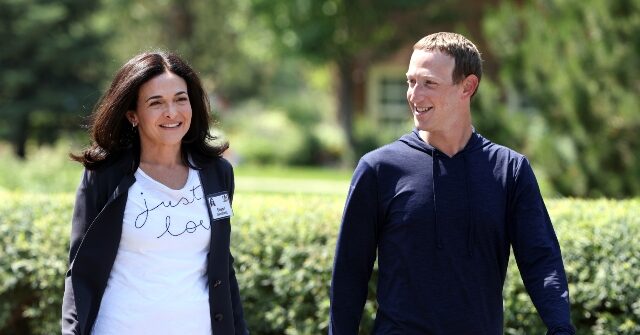Bloomberg reports that Sheryl Sandberg, the former COO of Meta and Mark Zuckerberg’s longtime second in command, took the stand as a key witness for the FTC. The agency is arguing that Meta’s acquisitions of Instagram in 2012 and WhatsApp in 2014 gave the company an illegal monopoly on the social networking industry and is seeking to undo those deals.
As Meta’s second-in-command at the time of the acquisitions, Sandberg played a crucial role in the company’s business strategy. The FTC wasted no time in attempting to undermine her credibility, presenting contradictory statements she made regarding Facebook users’ primary purpose and the value of Instagram.
When questioned about whether the majority of Facebook users utilized the service to stay connected with friends and family, Sandberg initially stated that it was “probably not” the case by the time she left the company. However, when confronted with her deposition testimony from September 2022, in which she affirmed that it was indeed the majority of users’ activity, she quickly amended her answer.
The FTC also highlighted an email exchange between Sandberg and CEO Mark Zuckerberg at the time of the Instagram acquisition, in which Zuckerberg asked if they had overpaid for the photo-sharing app. Sandberg had replied, “Yes, of course it’s way too much.” However, during her testimony, she backtracked, stating, “I don’t think anyone today would say we paid too much for Instagram.”
As Breitbart News previously reported, the FTC argues that Facebook overpaid for Instagram and WhatsApp as a “killer acquisitions” to get competition out of the way:
The FTC alleges that Meta’s purchases of Instagram and WhatsApp were “killer acquisitions” designed to eliminate competition and maintain a monopoly in the social media market. Matheson argued that after acquiring Instagram, Meta “fundamentally manipulated the experience” offered by the service to avoid cannibalizing its own more profitable Facebook product, a decision that “offends the policy” of antitrust laws.
The FTC believes that Zuckerberg was specifically seeking to take out rival social media sites focused on connecting with friends and family. Zuckerberg testified that while friends and family are an important component of Facebook, they are not the only focus. He said, “we’ve always been a service that lets you discover and learn about what’s going on in the world.”
Meta has vehemently denied the FTC’s monopoly claims, asserting that it helped Instagram and WhatsApp achieve growth far beyond what they could have accomplished independently. The company also disputes the notion that it dominates social networking, emphasizing intense competition from various platforms such as China’s TikTok, Snapchat, YouTube, Apple iMessage, and X (formerly Twitter).
The FTC presented evidence suggesting Meta’s monopoly power in the social media market, including a board presentation from March 2018 that showed a decline in user satisfaction following the Cambridge Analytica data privacy scandal. Despite this, there was “no visible impact to core engagement metrics,” indicating to the FTC that consumers lacked alternative options.
Sandberg was also questioned about Meta’s alleged efforts to disadvantage competitors by blocking their advertisements on Facebook. In a July 2011 message discussing the launch of Google’s social networking service, Google+, Sandberg wrote that “for the first time we have real competition and consumers have real choice.” However, she later discussed with Zuckerberg whether to block ads promoting Google+, stating, “I would block Google.”
From the witness stand, Sandberg attempted to reframe her comments about Google being Meta’s only real competitor, claiming she made those statements to “rally the troops” and that it was not a “fair reading of history.”
As the trial continues, Sandberg is expected to face further questioning about Meta’s business decisions and their potential impact on users of WhatsApp and Instagram. Given her role in overseeing Meta’s advertising operations, the FTC will likely probe whether these decisions harmed consumers by increasing the number of ads and weakening data privacy protections.
Read more at Bloomberg here.
Lucas Nolan is a reporter for Breitbart News covering issues of free speech and online censorship.
Breitbart News
Read the full article .


